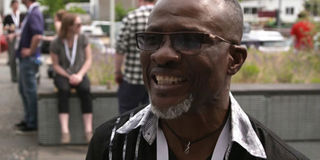‘Forget about equal partnership in global trade’

Prof Tetteh Hormeku
Kampala.
Least developed countries, including Uganda, should forget about an equal playing field in the global trade arena, the trade and negotiation analysts have said.
According to the continent trade analysts, it is not in the interests of the developed countries in the western world, whose economies grew as a result of (trade) protectionism, to relinquish their economic dominance, but rather, consolidate it further.
This is demonstrated by the push for, among other things, partnership agreements such as the economic partnership agreements (EPA) between the African, Caribbean and Pacific countries (ACP).
EPAs are the free trade agreements which the European Union (EU) is negotiating with countries in Africa, the ACPs.
Critics of EPAs, among them Tanzania, say the text of the pact in its current form are not concerned about development of the region and the continent. Instead it stands to further the interests of European companies.
Prof Tetteh Hormeku, a seasoned global trade analyst, during a presentation on Monday at the High-Level Civil Society African Wide Consultative meeting on WTO MC 11 and the ACP-EU post Cotonou partnership in Entebbe, said African countries should assert their interests rather than cave in for ‘sweeteners’ that relinquish their control of their policy and economic space.
He said: “As Africans, we must define our interests, stick to them and fight until we achieve them.”
He added: “When the Europeans or developed economies give you something, in essence, they are trying to pre-empt or eyeing something. So there is nothing such as partnership between Africa and EU. Their gain shouldn’t be at our expense.”
Going forward, he proposed that African countries should be talking about improving her economies and how to negotiate for them and not going into partnership with a partner who is calling the shots.
He also noted that in this partnership, the EU seems to approach it with purpose and coordination that will secure both its short and long-term interests. But that is lacking for the African States.
The agreements between the two are normally skewed towards accessing African raw materials and markets with limited or no restriction at all.
According to Prof. Hormeku, partnership is only possible where both partners have the same interests, something that is not the case between Africans countries and the EU.
In his remarks, the head of programmes at Uganda Debt Network, Mr Julius Kapepwe, said part of the problem is by the elite who have captured the state and therefore advance their own interests at the expense of hope and aspirations of the population they purport to represent.
Mr Bashir Ali, a lecturer at the University of Dar Salaam, said the current problem Africa is facing while dealing with other powers is because she has failed to learn from history, which shows that she always gets a raw deal.


